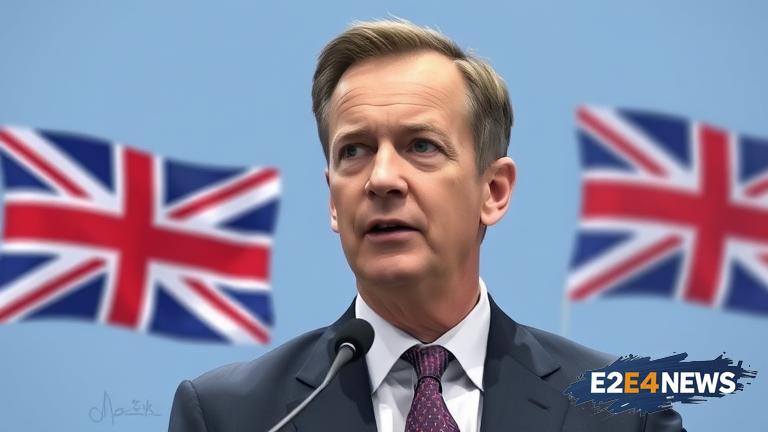Nigel Farage, a prominent British politician, has unveiled a radical plan to repeal certain rights laws and deport asylum seekers. The proposal has sparked intense debate and controversy, with many critics accusing Farage of promoting a divisive and discriminatory agenda. The plan, which has been met with widespread criticism, aims to overhaul the UK’s human rights framework and introduce stricter policies for asylum seekers. Farage claims that the current system is flawed and allows for abuse, citing concerns over national security and public safety. However, opponents argue that the plan would undermine the UK’s commitment to human rights and international law. The proposal includes measures to repeal the Human Rights Act, which enshrines the European Convention on Human Rights into UK law. Farage also wants to introduce stricter controls on immigration and asylum, including the deportation of asylum seekers to safe third countries. The plan has been condemned by human rights groups, who argue that it would put vulnerable individuals at risk of persecution and harm. Many have also criticized Farage’s rhetoric, accusing him of using divisive language to scapegoat migrants and asylum seekers. Despite the backlash, Farage remains defiant, insisting that his plan is necessary to restore public trust in the UK’s immigration system. The controversy has sparked a wider debate about the UK’s role in the world and its commitment to human rights. Some have argued that the plan reflects a broader shift towards nationalism and isolationism, while others see it as a necessary response to public concerns over immigration. The UK government has yet to respond to Farage’s proposal, but it is likely to face significant opposition from parliament and civil society. As the debate continues to unfold, it remains to be seen whether Farage’s plan will gain traction or be rejected as a divisive and unworkable solution. The UK’s human rights record is likely to come under scrutiny, with many watching to see how the government responds to the proposal. The plan has also raised questions about the UK’s relationship with the EU and its commitment to international law. Farage’s proposal has been seen as a challenge to the UK’s traditional role as a champion of human rights, and many are waiting to see how the government will respond. The controversy has sparked a wider conversation about the balance between national security and human rights, with many arguing that the two are not mutually exclusive. As the debate continues, it is clear that Farage’s plan has struck a nerve, highlighting deep divisions within the UK over immigration and human rights. The plan has also raised concerns about the impact on vulnerable individuals, including asylum seekers and refugees. Many have argued that the plan would undermine the UK’s reputation as a safe haven for those fleeing persecution and conflict. The controversy has also sparked a debate about the role of politicians in shaping public discourse, with many criticizing Farage’s use of divisive rhetoric. Despite the criticism, Farage remains a prominent figure in UK politics, and his proposal is likely to continue to shape the debate over immigration and human rights. The UK government faces a difficult balancing act, as it seeks to address public concerns over immigration while upholding the country’s commitment to human rights. As the debate continues to unfold, it remains to be seen whether Farage’s plan will succeed in shaping the UK’s immigration policies or be rejected as a divisive and unworkable solution.
